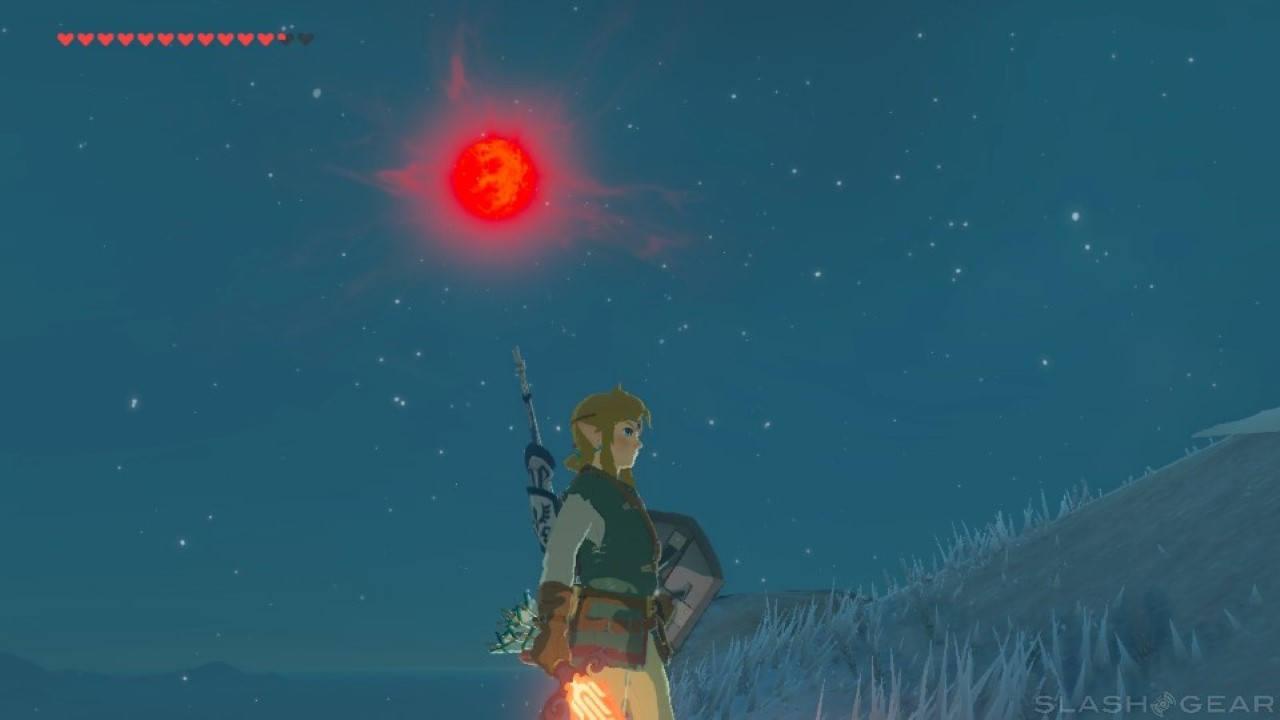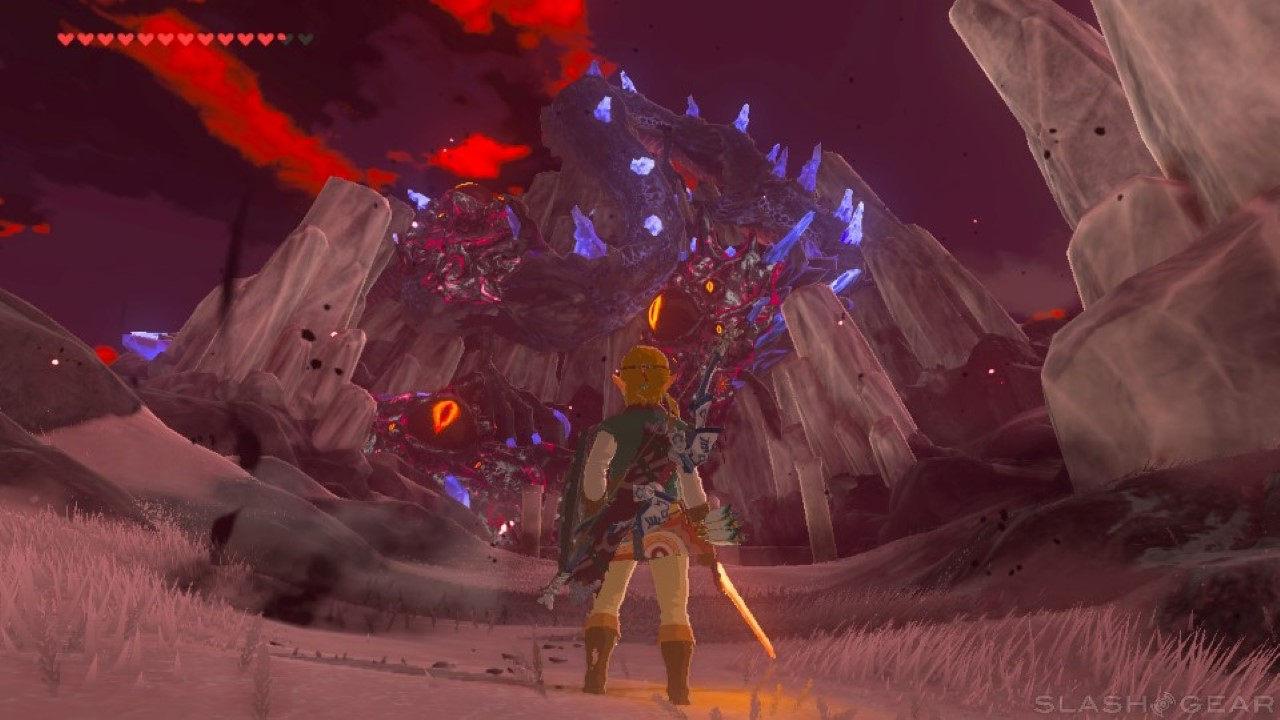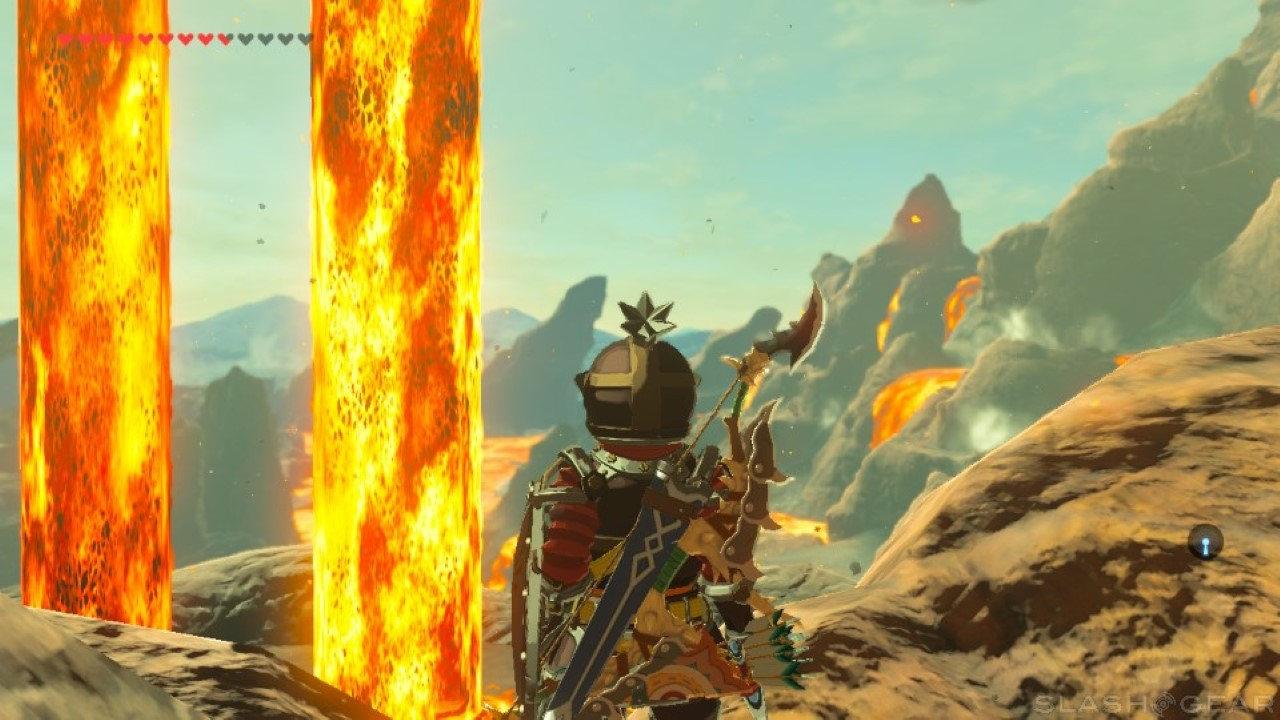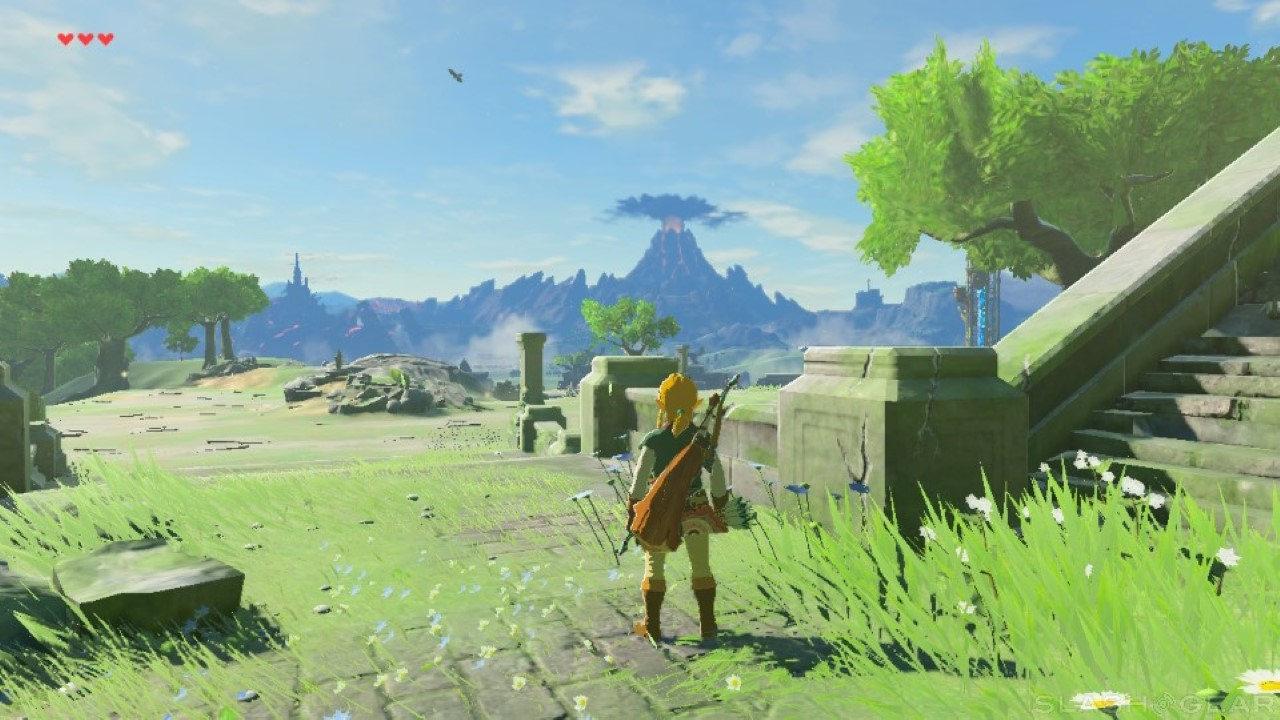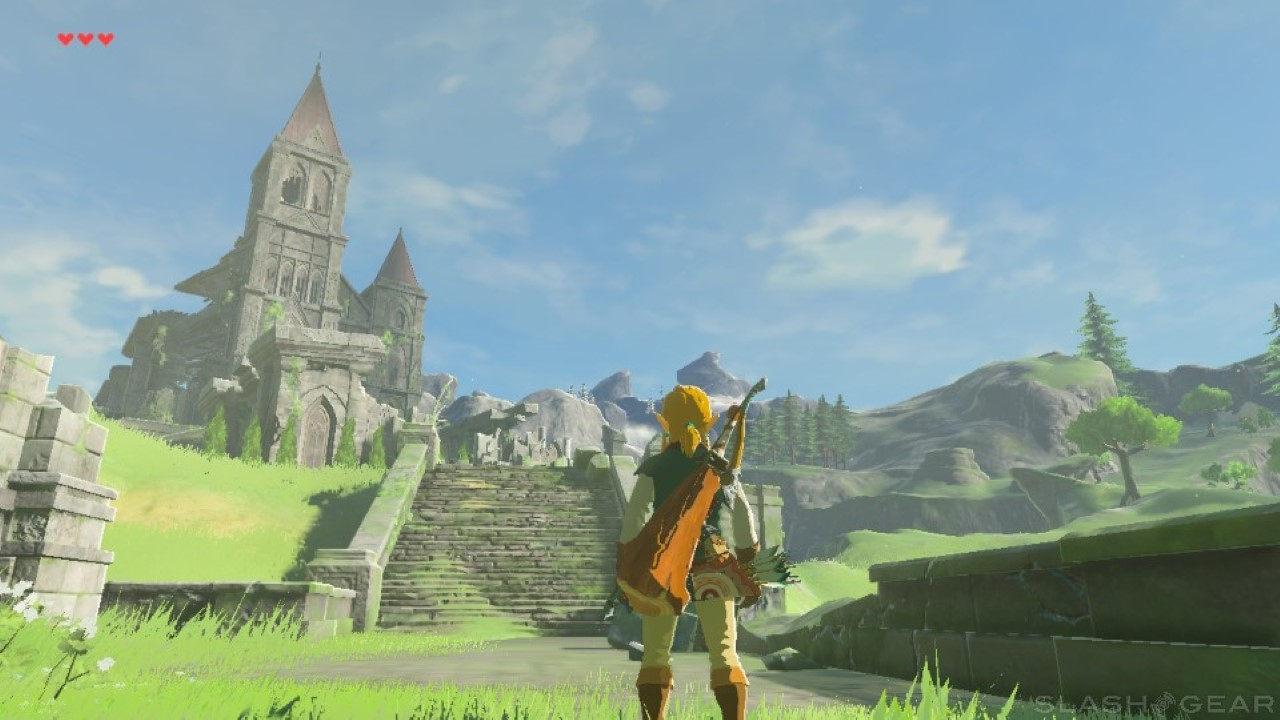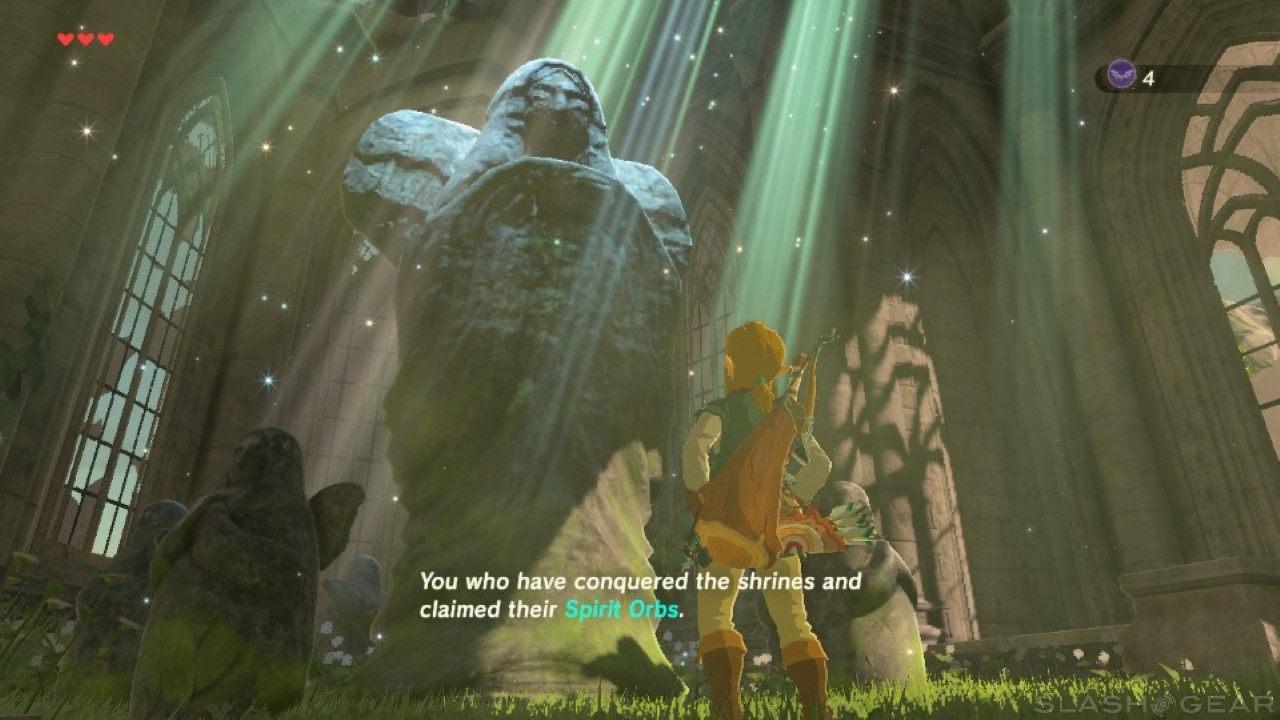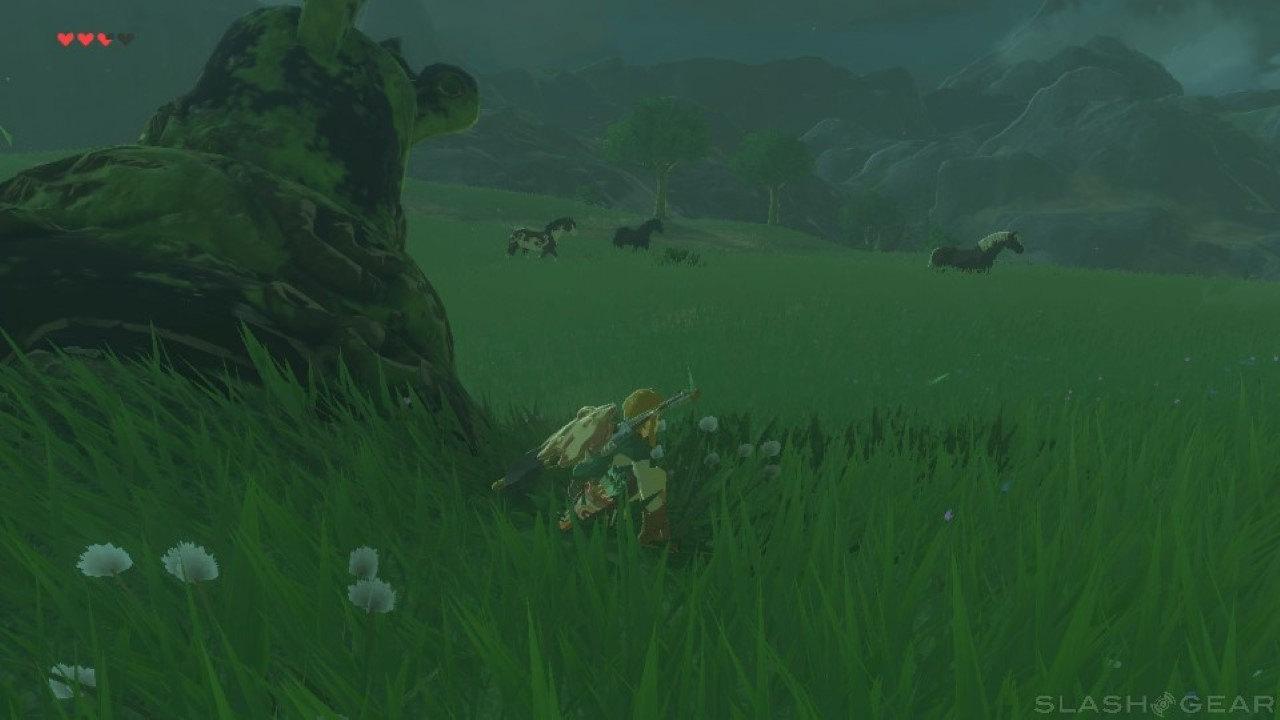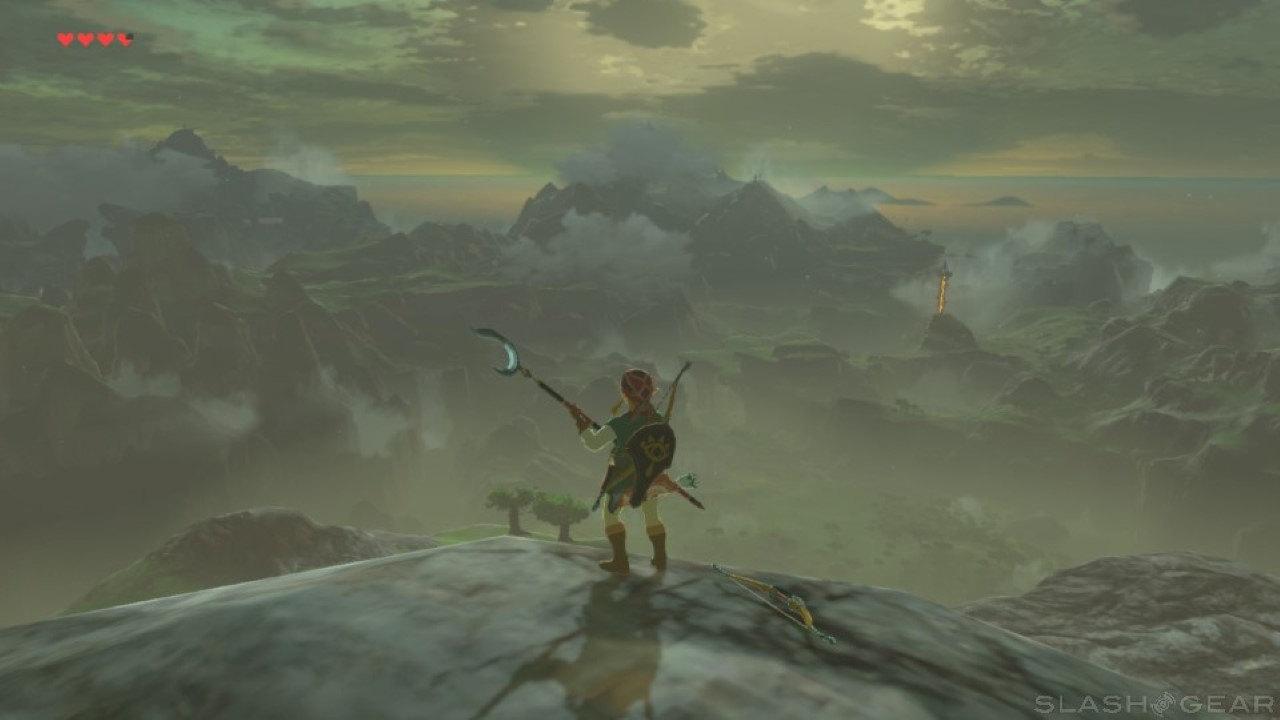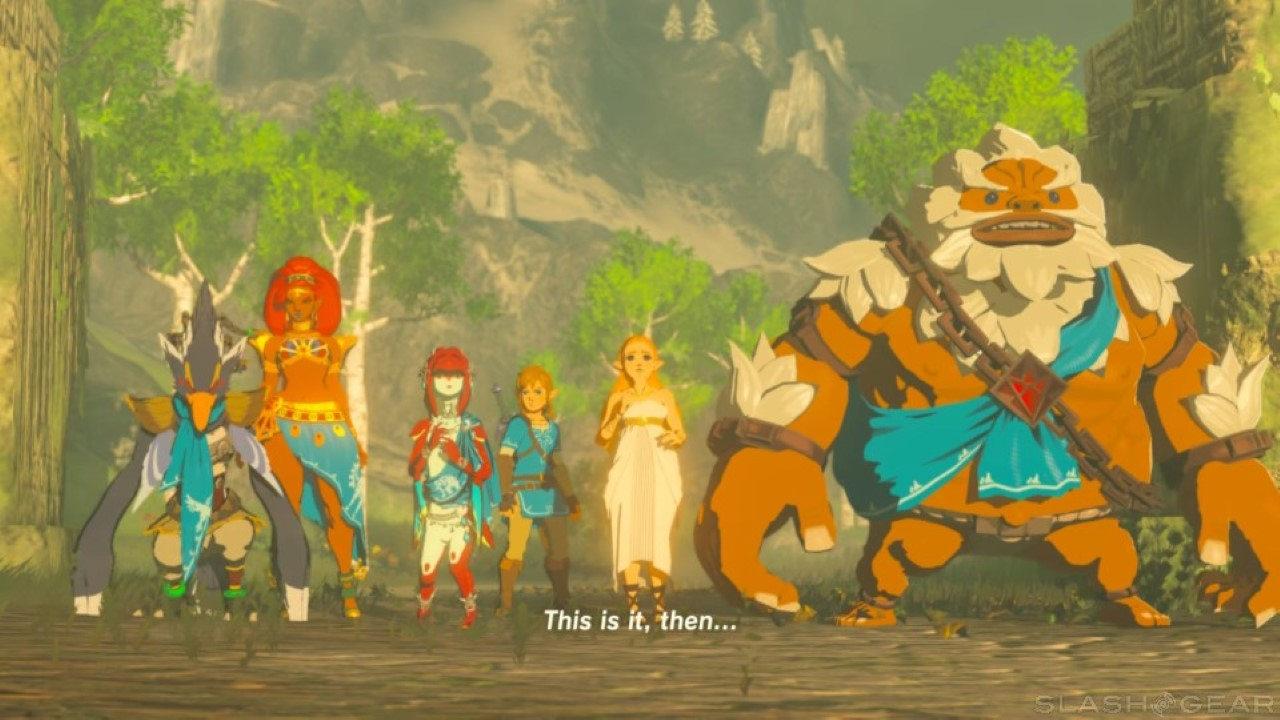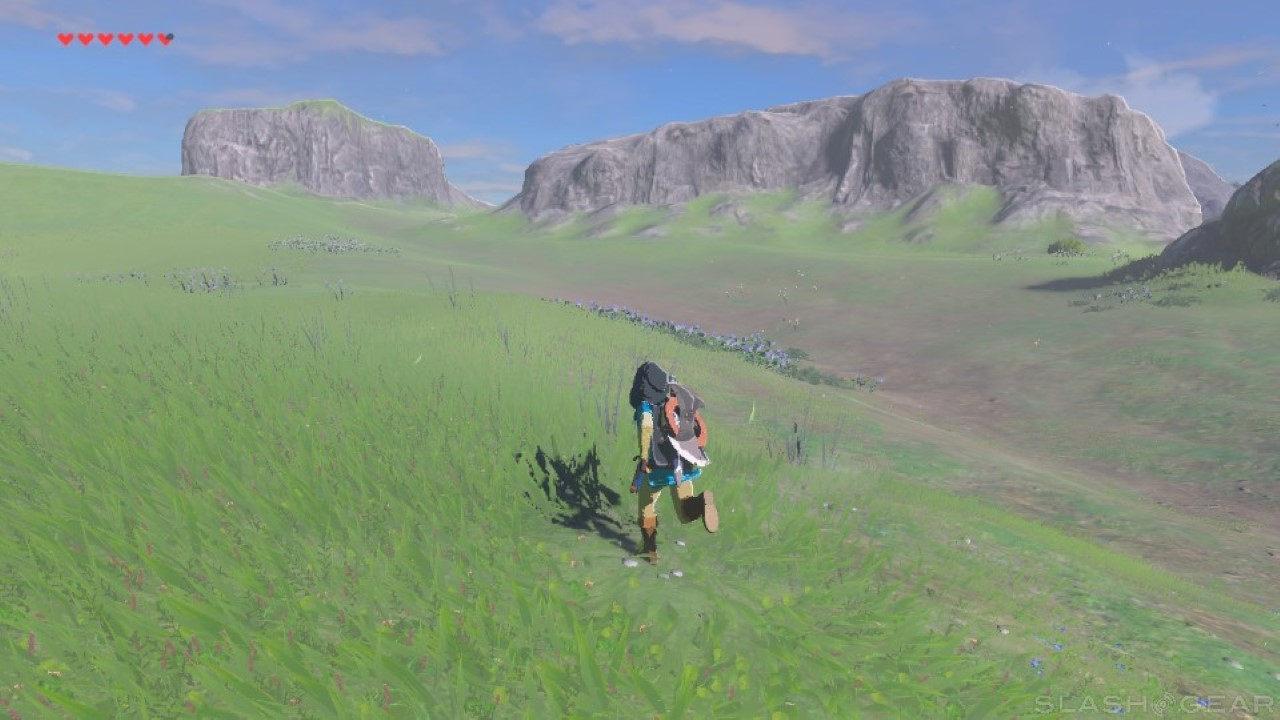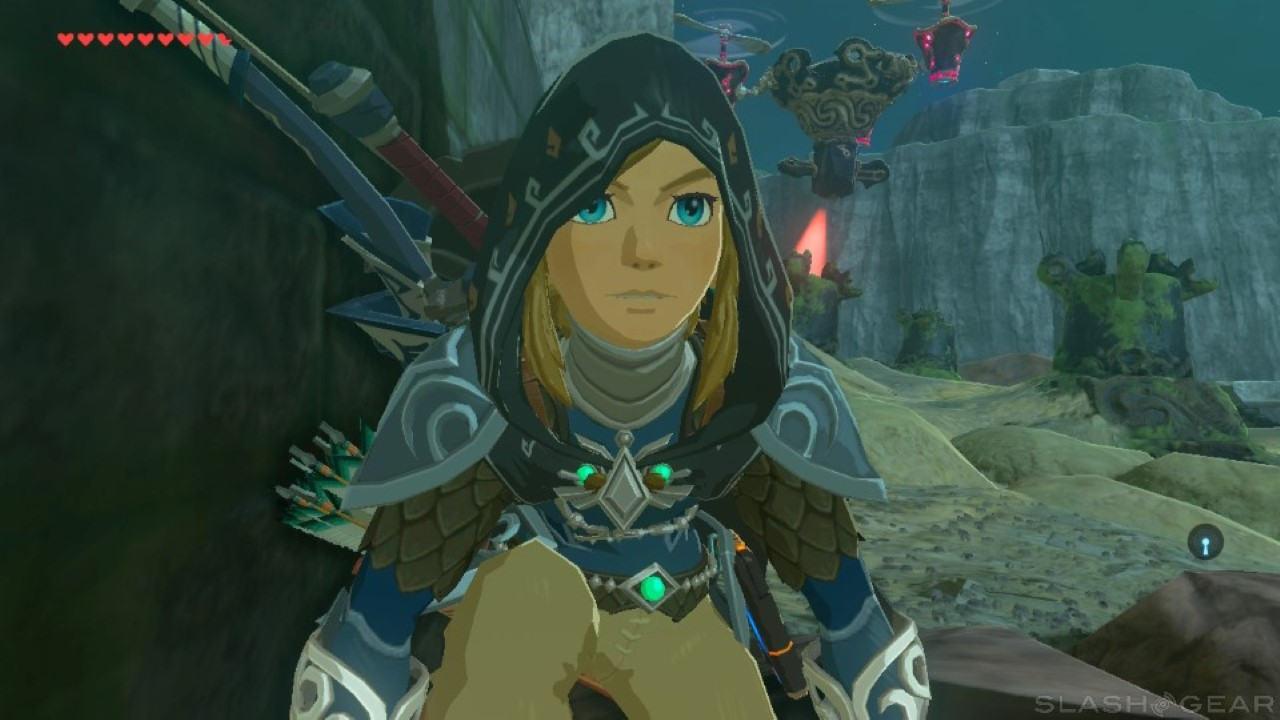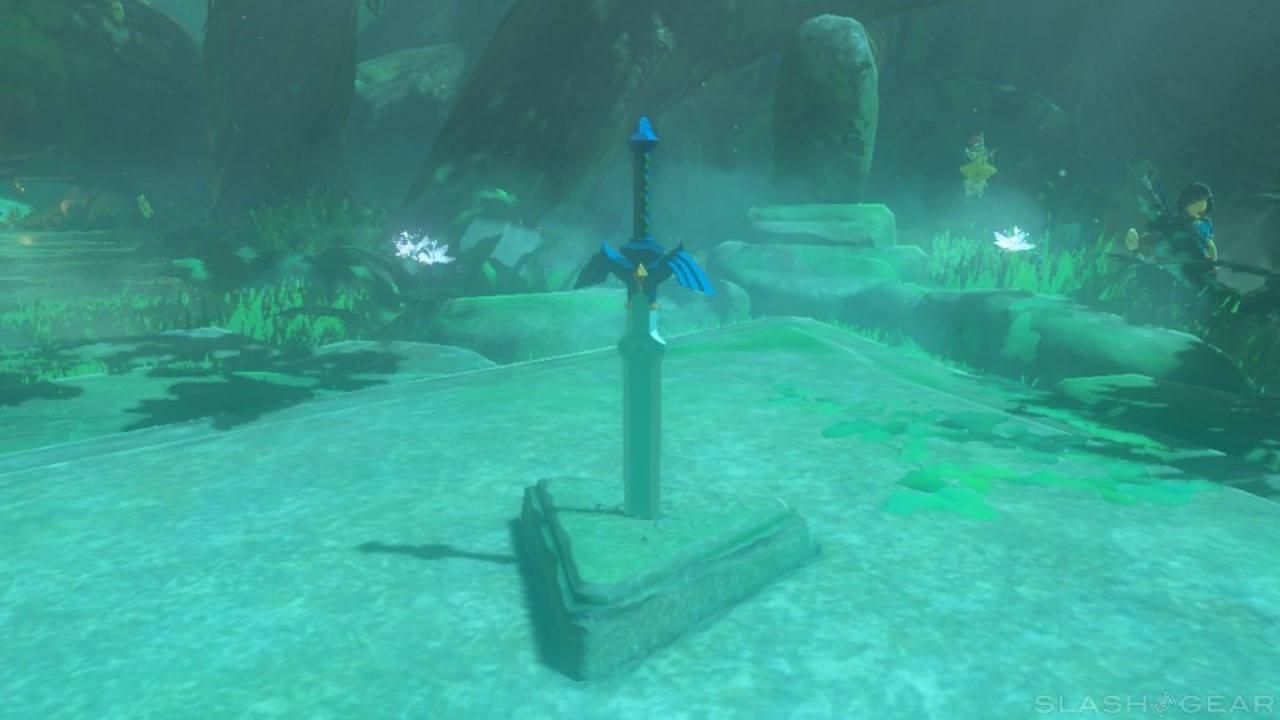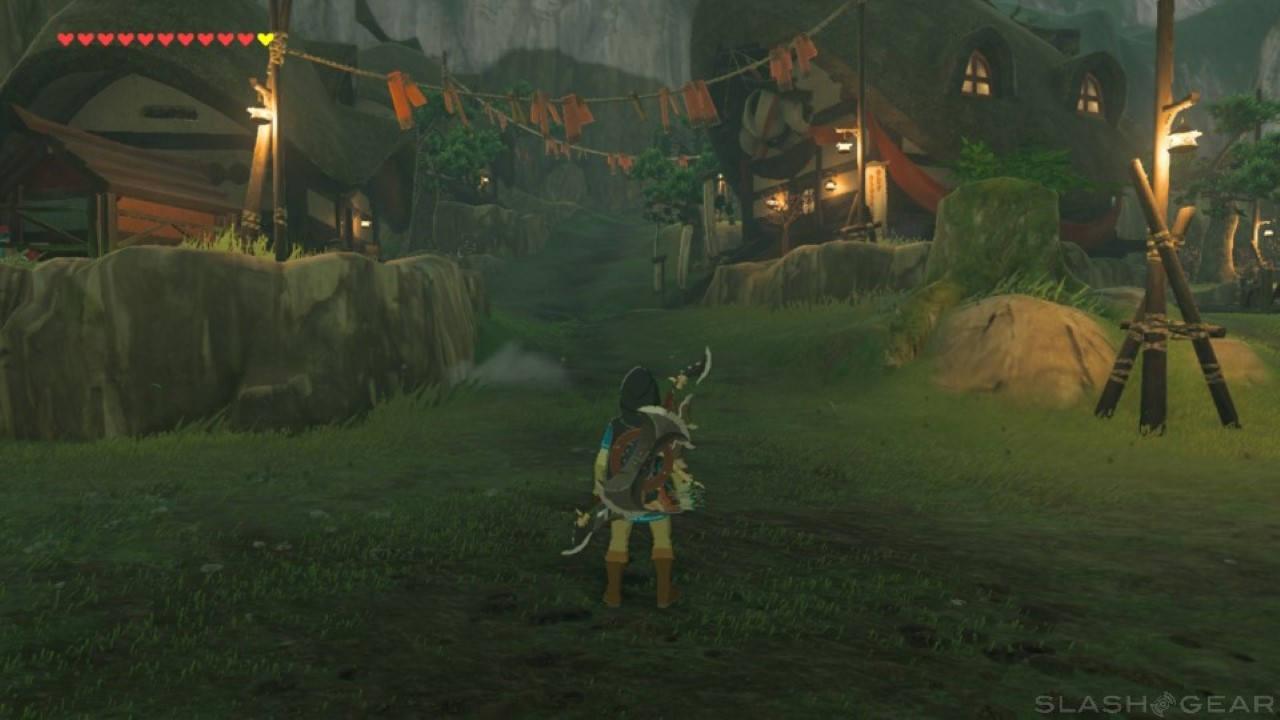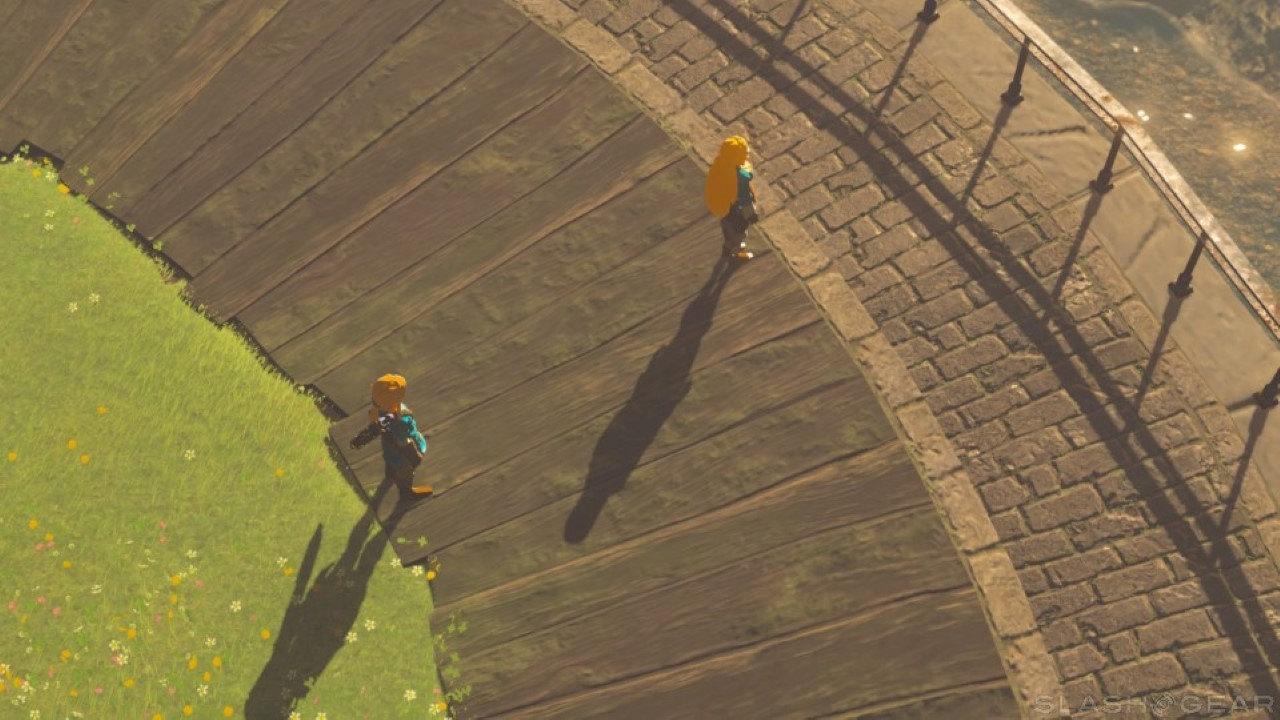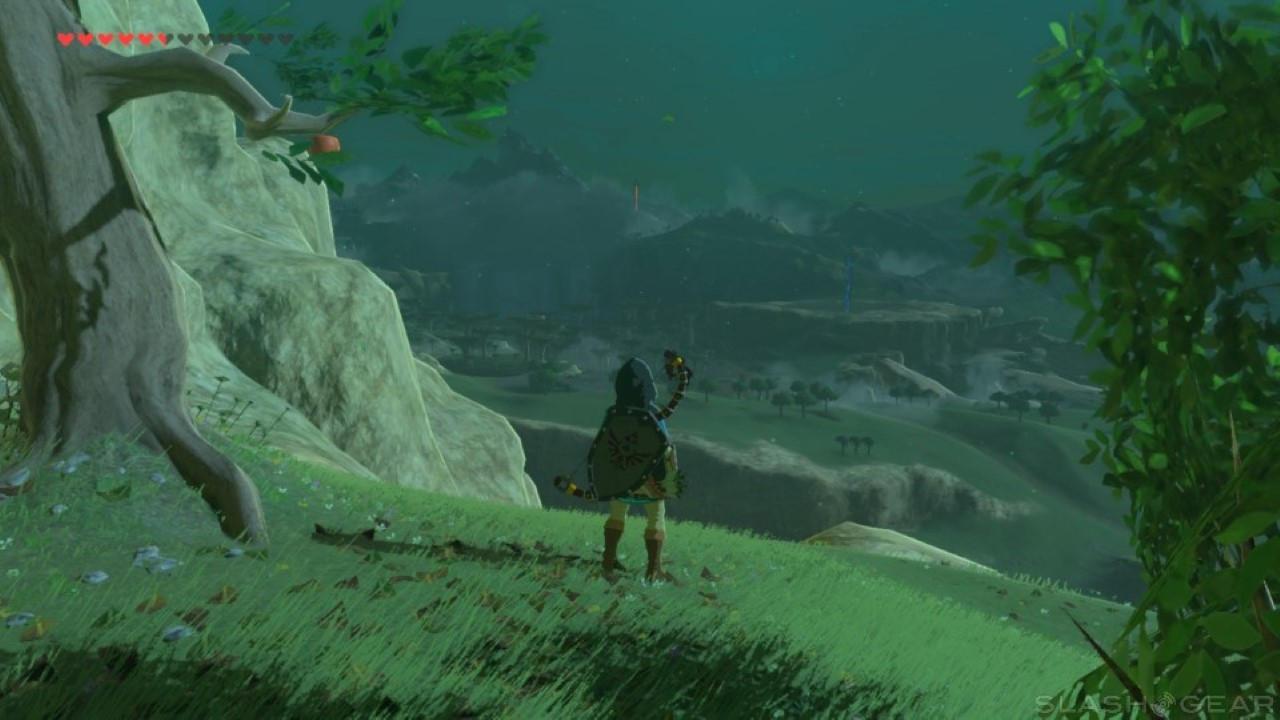The Legend Of Zelda: Breath Of The Wild Review - The Grandest Adventure Yet
- The best Zelda game ever made
- A truly open world teeming with things to do and see
- Offers challenges that are very rewarding once overcome
- Frame rate doesn't always stay stable
- Voice acting could use some work
- I have to stop playing it at some point
I'm just going to admit it right off the bat: I haven't been on board the Breath of the Wild hype train this entire time. When Nintendo first started showing the game off, alongside the promises it made about a truly open world and a reinvention for the Zelda franchise, I was skeptical. I didn't think Nintendo could deliver on its promises. After all, for the past 20 years, Zelda has been anything but open world – aside from a slight detour from the tried-and-true formula in A Link Between Worlds on the 3DS. I thought, if anything, Breath of the Wild would just be a console version of that.The Legend of Zelda: Breath of the Wild
Developer: Nintendo EPD
Publisher: Nintendo
Platforms: Switch (version tested), Wii U
After 80 hours clocked in Breath of the Wild with no end in sight, I can now say that I've never been happier to be so laughably wrong about something in all my life. It's clear now that I should have been on that hype train from the minute it showed up at the station. I should have been hanging out the window, pumping my arm, and screaming "choo choo" all the way up until release day.
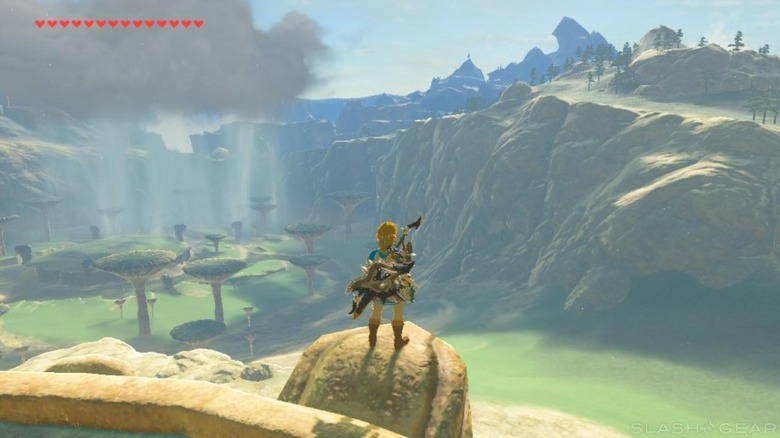
Even though it's cliché to say it, I can't really think of anything else that fits here: Breath of the Wild is a masterpiece. There is no better Zelda game out there. There may not even be a better adventure game out there. I could buy the argument that Breath of the Wild and A Link to the Past are equal in terms of quality, but after all these years, the SNES classic is no longer alone at the top of the heap.
The crazy thing about this is that The Legend of Zelda: Breath of the Wild earns my admiration while being almost nothing like any Zelda game released in the past 20 years. There's a little bit of hyperbole in that statement, of course; it looks like Zelda and it feels like Zelda. It has all of the same characters we've come to expect. Beyond that, though, Breath of the Wild breaks nearly every trope the Zelda series has laid down over the years.
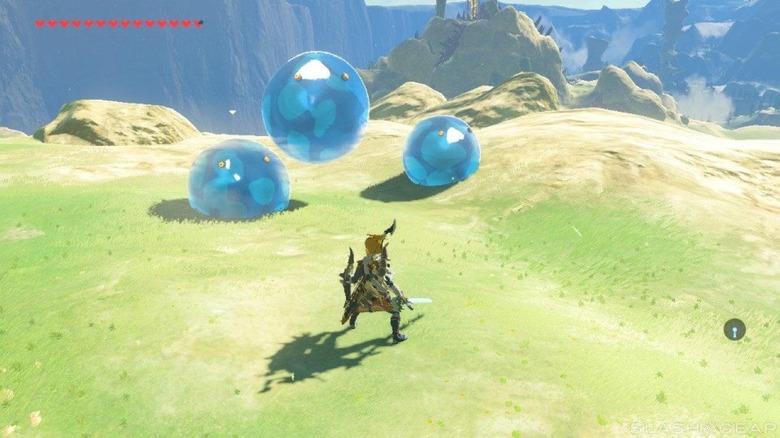
Gone is the linearity of previous Zelda games, which had you running from dungeon to dungeon to acquire new items and new power before eventually facing off with Ganon. Gone is the inventory that fits on a single page. Gone is the Hyrule that only serves as a generally actionless hub to connect the cities and dungeons in the game.
In its place is a new Hyrule that has been devastated by Calamity Ganon but is nonetheless teeming with things to do. There haven't been many free moments in the past weeks where my time wasn't occupied by Breath of the Wild, and for good reason. The desire to explore this vast open world has permeated my life in a way that few games are capable of. It's provided me a sense of wonder that I thought we all lose as we grow into adults.
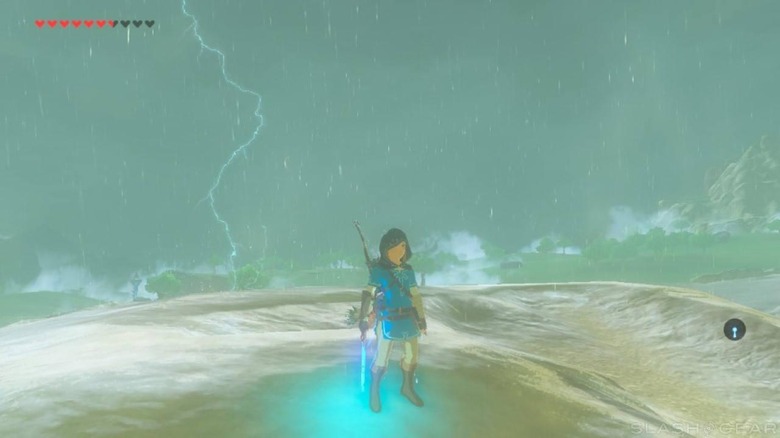
One of the most appealing parts about Breath of the Wild is that you're largely on your own throughout the entire game. Nintendo has established a reputation for holding the player's hand during its games – recent Mario titles do it by offering you what boils down to invincibility when your fail a stage too many times, while Mario and Luigi: Dream Team on the 3DS stands out in my mind as a game that was mostly tutorials. Zelda is not immune to this phenomenon, either. Ever since The Legend of Zelda: Ocarina of Time launched way back in 1998, it seems we've had some sort of guide telling us where to go or what to do next.
That isn't the case in Breath of the Wild, as the game ditches the series' penchant for heavy exposition and guided gameplay, instead choosing to drop you in this world and see what you do. It's true that the opening hours in the Great Plateau are accompanied by the guidance and advice of the Old Man, but his instruction is never as obtrusive as that of Navi from Ocarina of Time or Fi from Skyward Sword.
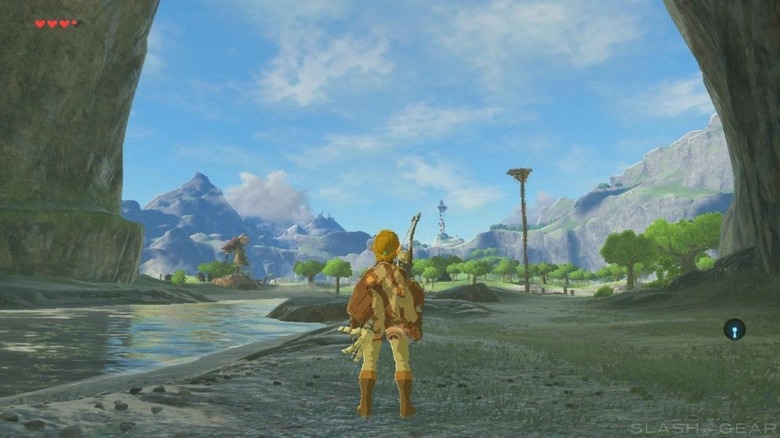
This is a simple change in the grand scheme of things, but in terms of the Zelda franchise, it's also one of the most significant. There was a bit of anxiety present when I first completed my mission in the Great Plateau and had the entirety of Hyrule open to me. As a person who claims Zelda as their favorite video game franchise, this was not something I was used to – I was accustomed to someone telling me what I needed to do next, not getting to actually decide that for myself.
If you happen to find yourself in the same boat I was, my best advice is just pick a direction and run. It won't be long before you find something fascinating, which often leads to something else for you to do. This is a game where you can hone in on the main quest and complete it quickly, but I don't know why you'd want to when there's so much to do and see. It can be overwhelming at times – exploring one area only to see something else that looks interesting on the horizon – but that's what makes this game so appealing: everyone will have a different story to tell because everyone's adventure will have led them on a different journey.
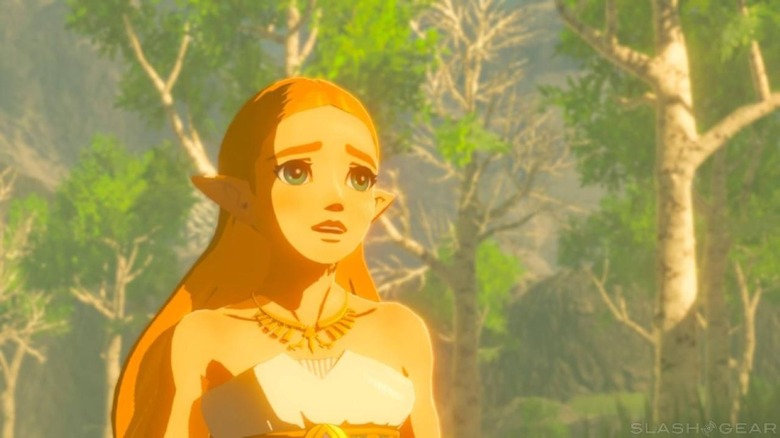
There is no question that the Zelda series is better for this change. If we're going to say that The Legend of Zelda is all about the adventure, then it makes little sense to have something guide us from one area of interest to the next. The real adventure comes from exploring this world on your own, completing quests at your own pace, and seeing just what you can uncover by looking in the hidden, out of the way corners of this world.
There are a lot of things to find, too. The number of full-fledged dungeons we've come to expect from Zelda games has been cut in Breath of the Wild to make room for shrines. Shrines are where you'll find many of the puzzles in Breath of the Wild – complete them, and you'll be given a spirit orb. Once you get four spirit orbs, you can exchange them for either a heart container, extending your total life, or a stamina vessel, which expands the amount of energy you have to do particularly strenuous tasks.
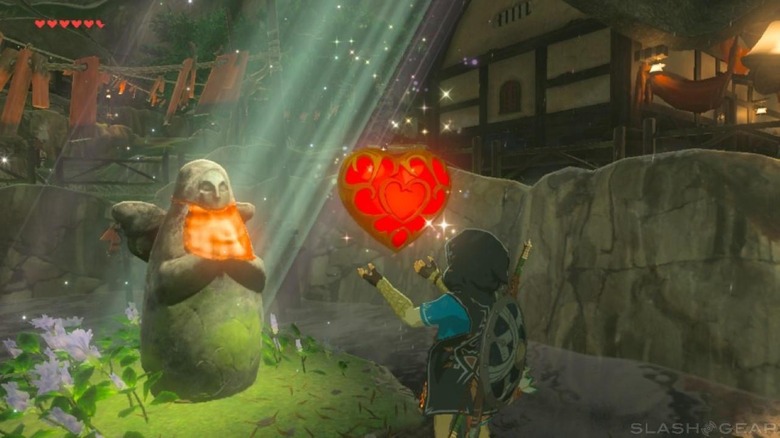
I have to say that I much prefer completing shrines over hunting down individual heart pieces within Hyrule. The puzzles found within these shrines are, for the most part, very well done. They're consistently good and usually fun to play, save for a very small number of motion control puzzles that don't seem to be as expertly crafted as the rest. With 120 shrines and these motion control puzzles featuring in a very small percentage of them, though, this is a very minor complaint.
One of the coolest things about how these puzzles have been made is that there isn't always one solution to them. You have a lot of tools at your disposal in Breath of the Wild and all of them will come in handy as you're solving the puzzles you encounter on your quest. I won't get into too many specifics because I want to avoid spoilers as much as possible, but the fact that you can solve a puzzle in more than one way means that Nintendo was more concerned about rewarding critical thinking than figuring out a single answer. I can't tell you how many times I've made it to the end of a shrine only to watch a streamer do the same shrine a completely different way. It's awesome.
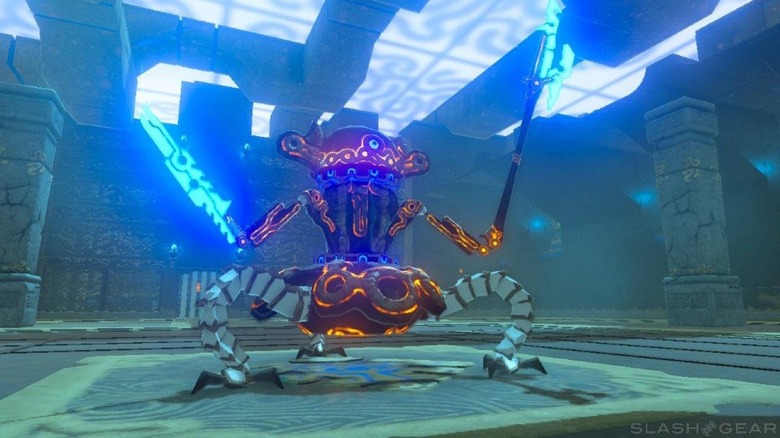
That kind of "find the solution that works best for you" mentality is prevalent throughout the entire game, not just the shrines themselves. No where is this more clear than when in combat. You, of course, have the option to run in swinging, but meeting every enemy head-on, sword in hand just means that you'll burn through your weapons quicker. Sometimes, it's a much better idea to use bombs, the environment, or spells like Stasis or Magnesis to dispatch your enemies. Finding a way to empty an enemy encampment without ever unsheathing your weapon is not only great fun, but also rewarding.
We also see this idea present in world exploration, where you can follow the roads to discover cool stuff or strike out to see where the wild leads you. If you want to make it to the top of a mountain, you can look for a path that will take you to the top, or you can simply try to climb up the side. There's no one right way to do things in this game, and that's a particularly liberating feeling, especially in a Zelda game.
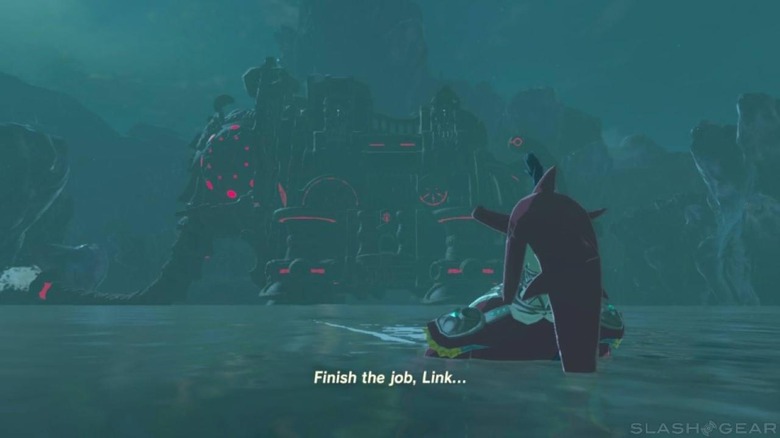
Of course, the game does put limits on what you can do through the stamina system. At first, you stamina will be quite low, only allowing you to sprint, swim, or climb short distances. As you play and unlock stamina containers with your Spirit Orbs, though, you'll be able push Link just a bit further, making it to the top of a mountain that was at one point insurmountable or swimming out to that island you couldn't reach before. I think the stamina system is excellent, because it allows Nintendo to put a soft cap on what you're capable of without sectioning off parts of the map until you're strong enough to conquer them.
As in real life, there are shortcuts to almost everything, and in Breath of the Wild, that short cut is most often food. You'll find a lot of items in Breath of the Wild, and most of them can be used to cook dishes or brew helpful elixirs. Though it can be a little time consuming using Breath of the Wild's UI to cook, I did find this aspect of the game very enjoyable, as it can grant Link considerable buffs to his attack power, life, defense, movement speed, or stamina. It's a way to temporarily get around your own limitations and give Link an edge when it comes to dealing with a tough enemy or environmental challenge.
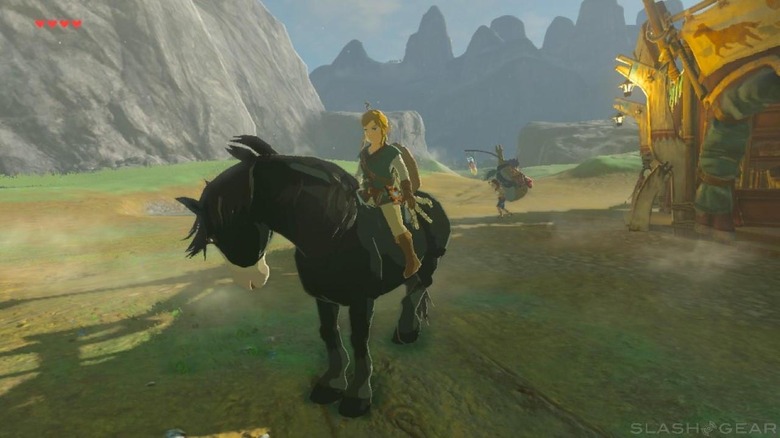
You'll need every edge you can get too, because the Hyrule of Breath of the Wild wants you dead. This isn't the Zelda you grew up with, where the enemies are pushovers once you figure out the tricks to beating them. Surviving some encounters will take everything you've got – not only will you need to be quick on your feet, but you'll need to use the best weapons at your disposal and prepare ahead of time by cooking all the food you may need. That's what makes this game so rewarding to play, though – having the game blindside you with a spike in difficulty that you weren't expecting is common, but when you figure it out and overcome the challenge, you feel unstoppable.
You'd think that, like Skyrim, Breath of the Wild would be a little rough around the edges because it gives you so much freedom. I haven't found that to be the case, though. Aside from a few minor hiccups, this game seems to be almost perfect in its execution.
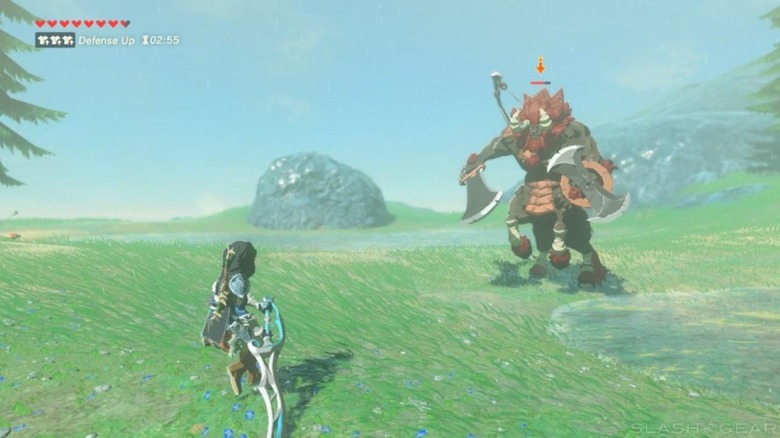
The biggest problem I encountered throughout the game were occasional frame drops. These tend to happen when you're in an area with a lot of action on screen, such as a forest with a lot of foliage. It also happens more often when you're playing with the Switch docked, and it was surprising to see that they're very rare when playing the Switch in tablet mode. While these are a nuisance, they don't happen often enough to detract from the overall experience.
I also have a small gripe about the music. The music in this game is fantastic, just like every Zelda game that came before it, but there isn't enough of it. Instead of these sweeping instrumentals that play every time something happens, we're instead treated to a score that gives a more ambient feel. When you hear music in this game, it's more often just a few bars at a time. It works really well, but I just want to hear more of it.
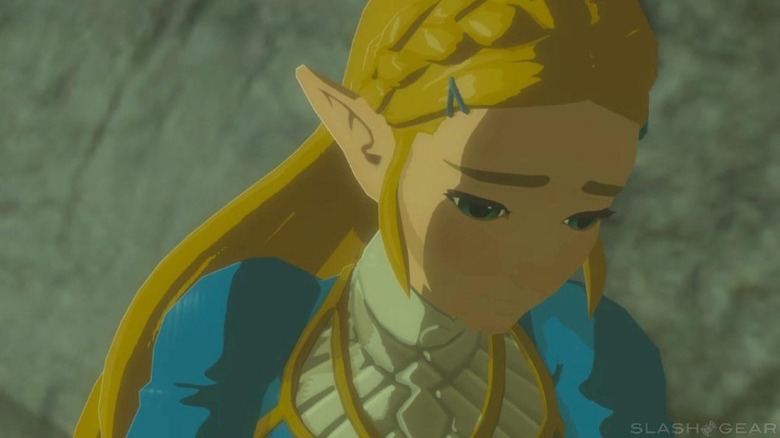
You'll also hear people complain about how quickly weapons, bows, and shields break in this game. It's true that they do break frequently, but I would argue that the rate at which this happens is not too frequent, as some claim.
I tend to play open world games as something of a hoarder, picking up every little thing I can find and then holding onto all of it until the moment I absolutely need it. As a result, the coolest and most powerful items I find never get used, out of fear of not having them on hand when I truly need them. Ironically, that time never comes, because I always think a greater challenge is waiting around the corner. I know I'm not alone with this play style, and it really seems like Nintendo didn't want Breath of the Wild to be played this way.
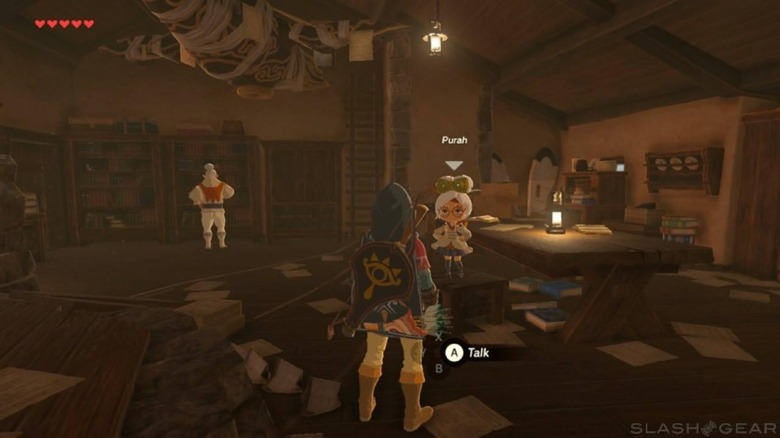
The rate at which weapons break is just fast enough that sometimes you won't have any choice but to use that good weapon you've been holding onto. It forces you to scour the world for new weapons to use, and if the only thing you can find is a shoddy club, then you'll have to make it work. It can be frustrating to lose that awesome weapon, but another one is never far off, and if we're being completely honest, you'd probably never used that weapon if you had a choice.
In this way, Breath of the Wild forces even open world veterans out of their comfort zone. At a time when saying "anywhere you can see, you can go," isn't enough to sell us on open world games anymore, Nintendo came in and flipped the genre on its head. Breath of the Wild pushes you out the door, points to that castle in the distance, says "that's your goal, but good luck getting there," before slamming the door behind you. It doesn't have to tell you to choose your own adventure, because it knows that leaving you figure out how to get to that castle in one piece will be a grand adventure all its own. That is a wonderful thing.
Wrap-Up
I've already written so much about this game and yet it feels like I've only scratched the surface when it comes to what makes Breath of the Wild so incredible. There's so much to see and do in this game that I don't think I could cover it all in a review three times the length of this. So much has changed that the only way to truly understand for yourself is to play it.
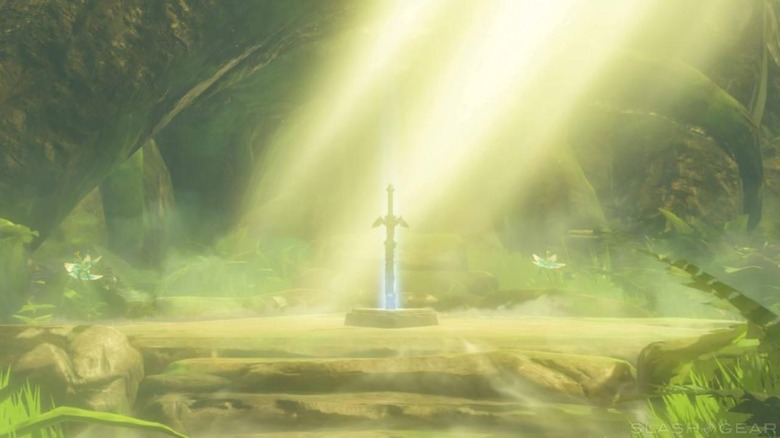
I will say this, though: Breath of the Wild is the best video game I've ever played, and that's saying a lot because we reside in a universe where Chrono Trigger exists. Everything about this game – the aesthetic, the music, the exploration, the combat, the puzzles – comes together in a way that elevates Breath of the Wild above not only every other game in its genre, but above most video games in general.
Yes, there are some minor gripes with the game. The frame rate isn't always stable. The English voice acting is a little weird. As far as I know, Tingle isn't in this game and that's an outright travesty. Every complaint I have, though, is quickly silenced by the brilliance of Breath of the Wild as a whole. The game is a true joy from start to finish, and it further cements The Legend of Zelda's place as one of the best video game franchises to ever exist.
The only thing I'm wondering now is how Nintendo could possibly top itself. The Legend of Zelda: Breath of the Wild is a triumphant success that is worth every penny and every minute you will spend on it. Of course, there is no such thing as a perfect game, but in my mind, Breath of the Wild comes as close as any game ever has. It is one of the best games ever made, and years from now we will look back on it as a turning point for the Zelda series.

